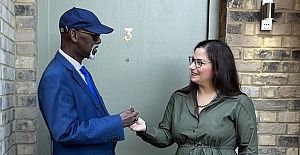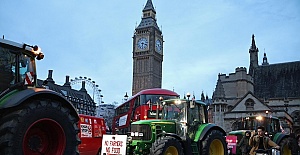The Resolution Foundation said Philip Hammond had delivered £55bn in tax cuts and increases in public spending.
It said that richer households would feel the most positive effects.
However, the report highlighted that many of the cuts to welfare announced in 2015 are still to be rolled out.
That includes the £1.5bn benefits freeze for people in work which the foundation said would see a low income couple with children up to £200 a year worse off.
The Resolution Foundation, a not-for-profit research and policy organisation, said it was the top 10% of households that would gain most - around £410 a year - from the decision to increase the amount people can earn before they start paying income tax and the higher rate of tax.
Poorer households would gain around £30 a year.
Who benefits?
Speaking to the BBC's Today programme, the chancellor pointed out that he had allocated an extra £6.5bn for Universal Credit and raised the Living Wage.
"If you look at all the measures in the Budget - and we've done this very carefully - you will see that it is those on the lowest incomes that proportionately benefit the most," he said.
The Resolution Foundation said that with borrowing far lower than expected and economic growth predicted to be slightly higher over the next two years, Mr Hammond decided to spend three quarters of the £74bn extra headroom that was provided by the better public finances.
"The chancellor was able to navigate the near impossible task in his Budget of easing austerity, seeing debt fall and avoiding big tax rises, thanks to a £74bn fiscal windfall," said Torsten Bell, the director of the foundation.
"He chose to spend the vast majority of this on the NHS, income tax cuts and a welcome boost to Universal Credit.
"But while yesterday's Budget represented a seismic shift in the government's approach to the public finances, it spelt an easing rather than an end to austerity - particularly for low and middle income families."
Mr Bell said the chancellor had made "very welcome" commitments to helping people on the new Universal Credit benefit but that three-quarters of the benefit cuts announced in 2015 were still to take effect.
"Income tax cuts announced yesterday will overwhelmingly benefit richer households, with almost half of the long-term gains going to the top 10% of households," Mr Bell said.
"On public services the NHS saw a big spending boost - but unprotected departments still have further cuts pencilled in."
This Budget has certainly seen a turnaround in the government's approach to the public finances - with day-to-day spending per person set to rise by 4% a year until 2023 - in contrast with a 4% fall previously planned.
In his Budget yesterday, Mr Hammond said that the "hard work" of the British people was paying off "and the era of austerity was finally coming to an end".
BBC NEWS



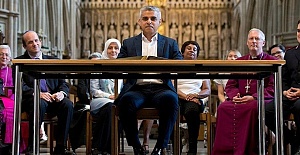 The candidates vying to be the next London mayor
The candidates vying to be the next London mayor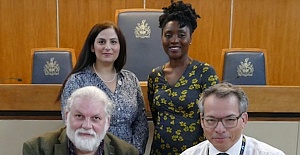 Enfield Council commits to anti-racism and diversity pledge
Enfield Council commits to anti-racism and diversity pledge President Erdogan promised supporters his party would learn its lessons from the defeat
President Erdogan promised supporters his party would learn its lessons from the defeat Mayor of London and London Assembly elections
Mayor of London and London Assembly elections Future Painters Exhibition at Tottenham Hotspur Stadium
Future Painters Exhibition at Tottenham Hotspur Stadium Models of Teaching International Journalism for Sustainable Development
Models of Teaching International Journalism for Sustainable Development UK and US scientists have been working on eclipse observations
UK and US scientists have been working on eclipse observations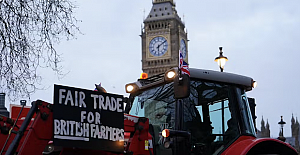 Unsupportive goverment policies jeopardizing foundation of UK food security
Unsupportive goverment policies jeopardizing foundation of UK food security English Premier League leaders Arsenal will visit title contenders
English Premier League leaders Arsenal will visit title contenders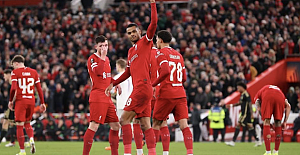 Liverpool meet Atalanta and West Ham face Bayer Leverkusen
Liverpool meet Atalanta and West Ham face Bayer Leverkusen Arsenal face Bayern Munich and Manchester City play Real Madrid
Arsenal face Bayern Munich and Manchester City play Real Madrid UK Transfer deadline day, the transfer window closes tonight
UK Transfer deadline day, the transfer window closes tonight Europe's travel strikes: Flight and train disruption you can expect in April
Europe's travel strikes: Flight and train disruption you can expect in April Enfield Council website achieves digital inclusion recognition
Enfield Council website achieves digital inclusion recognition Enfield Council’s Planning Enforcement team goes from strength to strength
Enfield Council’s Planning Enforcement team goes from strength to strength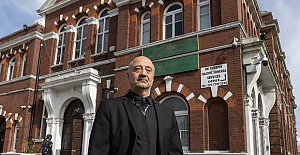 UK's first Turkish Shacklewell Lane Mosque faces threat to its future
UK's first Turkish Shacklewell Lane Mosque faces threat to its future








